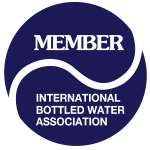Let’s start with the basics – What is Alkaline Water?
There is one primary difference between tap water and Alkaline water, and that is that Alkaline water has less acidity. It is called Alkaline because it contains the following metal compounds: Calcium, Silica, Potassium, Magnesium, and Bicarbonate.
You can achieve Alkaline water via two methods. The first – and natural method – is through water that has passed over rocks and picked up minerals before being bottled. The second method is Electrolysis: in which an ionizer will raise the pH level of regular tap water to make it more alkaline.
Alkaline water has been recommended to people who experience severe acidity as it can help to neutralize the acid in the body. Studies have shown that drinking certain Alkaline waters can have a positive effect on acid reflux. The study is made available by the US National Library of Medicine National Institutes of Health.
Another study has shown that drinking Alkaline water after a workout can help blood flow more efficiently through the body and deliver oxygen more effectively. The study is made available by the BMC.
Should you be drinking Alkaline Water?
It is widely accepted as safe to drink Alkaline water as it contains natural minerals, and many professionals say it’s a welcome addition to your normal water intake for a healthy lifestyle.
Medical professionals do warn against drinking too much Alkaline water and driving up the pH in the body too high – especially if you experience an underactive parathyroid gland – as this can result in a condition known as Alkalosis that causes confusion, nausea, vomiting, and tremors.

